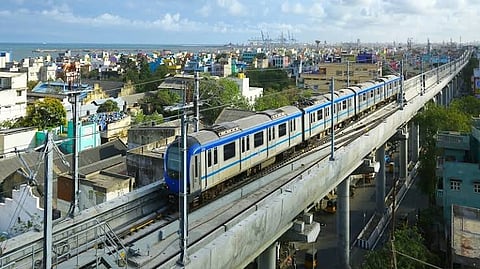

CHENNAI: CHENNAI’S residential real estate market retained its vitality even during the pandemic, proving its resilience after the first wave in 2020. The city, in fact, defied all odds and registered decent q-o-q growth (both new launches and housing sales) in 2020.
In fact, growing homeownership sentiment amidst Covid-like exigencies, further accelerated by offers and discounts by developers and lowest-best home loan rates, led many prospective homebuyers to take the plunge.
New launches and housing sales gained further momentum during the second wave in 2021, driven by rising homeownership sentiment amidst the pandemic.
As seen, the residential market was dominated by the mid and premium segments, with demand primarily driven by the salaried class.
Among the many factors, what worked in Chennai’s favour were that property prices in the city remained range bound due to the steady new supply and housing sales over the last few years.
The weighted average price in the city has primarily been under INR 5,000 per sq. ft. with major home purchases led by the end-users.
Additionally, Chennai by far has the least delayed housing stock among all the top 7 cities - merely <11,450 units. In fact, the city has no project that is completely stalled or stuck.
The numbers in the city are quite low because Chennai was traditionally a market with less prevalence of apartments. People usually preferred to buy land and construct on it.
And over the years with IT/ITeS sectors booming and migrant population coming in, apartment culture also flourished. Yet, unlike its counterparts MMR or NCR, Chennai largely launched apartment projects that were comparatively much smaller in size.
These smaller projects were easier to complete with lesser chances for cost overruns – a major deterrent for financially-starved developers.
Post-Covid, Chennai’s residential market not only remained resilient but also recorded a significant recovery from the second half of 2020 onwards.
Demand-Supply Dynamics
Chennai has seen steady supply of new units over the last two years during the pandemic. Developers have cautiously tried to maintain a balance between demand and supply and launch units in categories that are seeing maximum consumer demand – ie the mid and premium segments priced within Rs 40 lakh to Rs 1.5 cr.
As per Anarock Research, the city saw new supply of nearly 12,370 units in 2021 – at least 35% more than the preceding year of 2020 when approx 9,170 units were launched. The new launches in the city in 2021 have already reached 95% of the pre-Covid year of 2019 when approx 13,000 units were launched.
The budget segments that dominated new supply in 2021 included the mid and the premium segments – comprising 57% share of the total 12,370 units launched in 2021. In the pre-pandemic period (2019), these two segments comprised a 52% share of 13,000 units launched. Chennai’s southern and western quadrants witnessed maximum launches and sales over the last two years, accounting for approx. 96% of the total supply and approx 95% housing sales in the city.
As for housing, the city sold nearly 12,530 units in 2021 – 86% higher than those sold in 2020 (approx. 6,740 units).
In the pre-pandemic period (2019), nearly 11,820 units were sold in the city, signifying that housing sales in 2021 had breached the 2019-levels by at least 6%.
In contrast, Bengaluru didn’t see housing sales reach the pre-Covid levels. Sales in Bengaluru in 2021 had reached only 66% of pre-Covid levels of 2019. — The author is city head, Chennai, Anarock Group
As for housing, the city sold nearly 12,530 units in 2021 – 86% higher than those sold in 2020 (approx. 6,740 units). In the pre-pandemic period (2019)
Visit news.dtnext.in to explore our interactive epaper!
Download the DT Next app for more exciting features!
Click here for iOS
Click here for Android